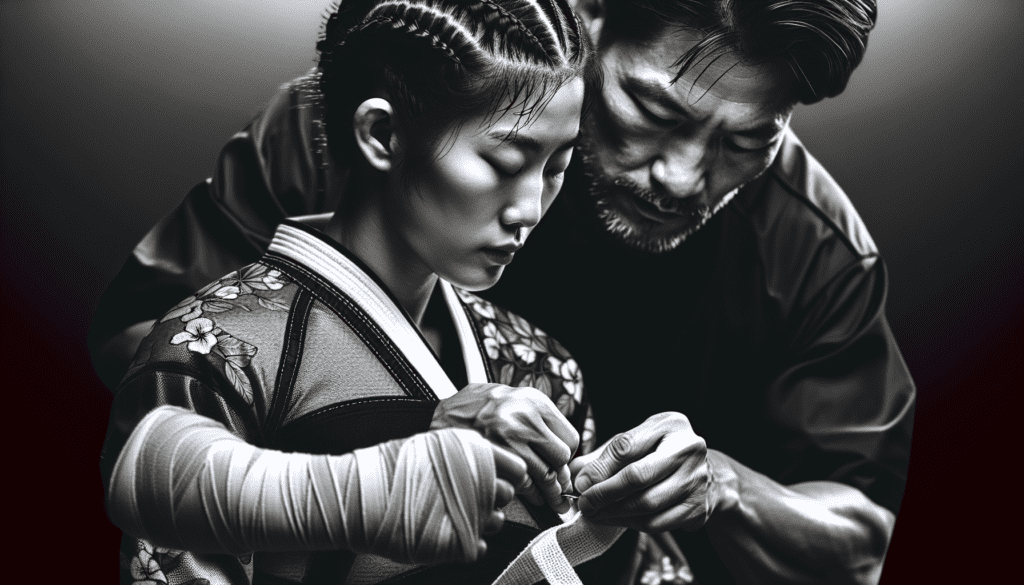Welcome to “Preventing Shoulder Injuries In MMA: A Comprehensive Guide,” where you will learn valuable tips and techniques to keep your shoulders strong and healthy during your training sessions and fights. From proper warm-up routines to specific exercises for shoulder stability, this article will provide you with the knowledge and tools to prevent common injuries in the sport of MMA. Stay tuned to discover how you can avoid shoulder injuries and improve your overall performance in the octagon.
Have you ever wondered how you can prevent shoulder injuries in MMA?
You love the sport of mixed martial arts (MMA) and want to ensure that you can continue training and competing without being sidelined by a shoulder injury. In this comprehensive guide, we will cover everything you need to know about preventing shoulder injuries in MMA.

Understanding the Anatomy of the Shoulder
Before we dive into prevention strategies, it’s essential to have a basic understanding of the anatomy of the shoulder. The shoulder is a complex joint that allows for a wide range of motion. It is made up of three bones: the humerus (upper arm bone), the clavicle (collarbone), and the scapula (shoulder blade).
Knowing the structure of your shoulder joint can help you understand why certain movements and techniques in MMA can put you at risk for injury.
Common Shoulder Injuries in MMA
Shoulder injuries are relatively common in MMA due to the nature of the sport, which involves a lot of repetitive motions and impact. Some of the most common shoulder injuries in MMA include:
-
Rotator Cuff Tears: The rotator cuff is a group of muscles and tendons that surround the shoulder joint. Tears in the rotator cuff can occur from overuse or sudden trauma.
-
Shoulder Dislocations: A shoulder dislocation happens when the humerus bone is forced out of the socket. This can occur during grappling or striking exchanges.
-
Shoulder Impingement: Shoulder impingement occurs when the tendons of the rotator cuff become pinched between the bones of the shoulder. This can cause pain and limited range of motion.
Understanding these common injuries can help you identify potential risk factors and take steps to prevent them.
Preventing Shoulder Injuries in MMA
Now that you understand the anatomy of the shoulder and the common injuries that can occur in MMA, let’s discuss some strategies for preventing shoulder injuries and keeping your shoulders healthy for training and competition.
Strengthening Exercises
One of the most effective ways to prevent shoulder injuries is by incorporating specific strengthening exercises into your training routine. Strengthening the muscles around the shoulder joint can help improve stability and reduce the risk of injury.
Here are some exercises to consider adding to your workout:
| Exercise | Description |
|---|---|
| Shoulder Press | Strengthens the deltoid muscles. |
| External Rotation | Targets the rotator cuff muscles. |
| Face Pulls | Helps improve shoulder mobility and stability. |
| Band Pull-Aparts | Works on the muscles between the shoulder blades. |
Incorporating these exercises into your training regimen can help you build a strong foundation and reduce the risk of shoulder injuries.
Proper Technique
Another essential aspect of preventing shoulder injuries in MMA is using proper technique during training and sparring sessions.
Make sure to:
- Warm-up properly before training.
- Focus on proper body mechanics during striking and grappling techniques.
- Listen to your body and avoid pushing through pain.
By using correct technique and paying attention to your body’s signals, you can minimize the stress on your shoulders and reduce the risk of injury.
Recovery and Rest
Recovery and rest are crucial components of injury prevention in MMA. Giving your body time to recover after intense training sessions allows your muscles and joints to repair and rebuild, reducing the risk of overuse injuries.
Make sure to:
- Get an adequate amount of sleep each night.
- Incorporate rest days into your training schedule.
- Consider adding recovery modalities such as ice baths or foam rolling to your routine.
Taking care of your body and allowing for proper recovery can go a long way in preventing shoulder injuries and keeping you in top fighting shape.
Injury Management
Despite your best efforts to prevent shoulder injuries, accidents can still happen. It’s essential to know how to manage an injury if it occurs to minimize its impact and ensure a quicker recovery.
If you suspect a shoulder injury, make sure to:
- Stop training immediately.
- Apply ice to the affected area to reduce inflammation.
- Seek medical evaluation from a qualified healthcare professional.
Properly managing an injury from the onset can help prevent further damage and get you back to training sooner.
Conclusion
In conclusion, preventing shoulder injuries in MMA requires a combination of strength training, proper technique, recovery, and injury management strategies. By understanding the anatomy of the shoulder, recognizing common injuries, and taking proactive steps to keep your shoulders healthy, you can enjoy training and competing in MMA without the fear of a debilitating injury.
Remember, your shoulders are vital for your performance in the cage, so take care of them and they will take care of you. Incorporate these prevention strategies into your training routine and enjoy a long and successful MMA career.


